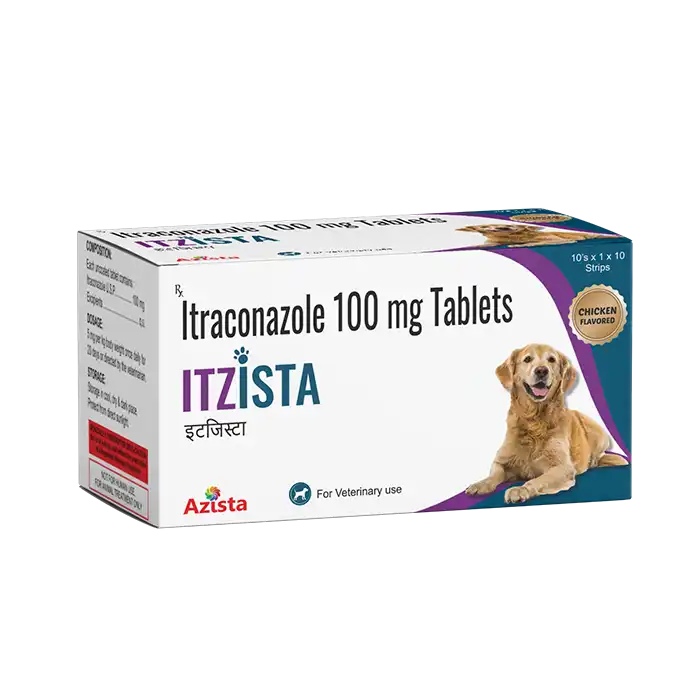Itzista
Itraconazole 100 mg
1x10 Chicken Flavoured Tablet
Itraconazole 100 mg to treat fungal infections affecting the skin, claws, bones, respiratory tract, and brain. This medication is effective only against fungal infections and will be ineffective if used to treat other types of infections, such as those caused by parasites, bacteria, or viruses.
It can kill the infective fungus at the concentrations that are reached on the surface of the eye. It is particularly effective against Aspergillus, one of the more common fungal pathogens.
The ophthalmic preparation of Itraconazole 100 mg contains 1% itraconazole, 30% DMSO, and artificial tears. This formulation is necessary because Itraconazole 100 mg does not dissolve well in water but dissolves well in DMSO.
